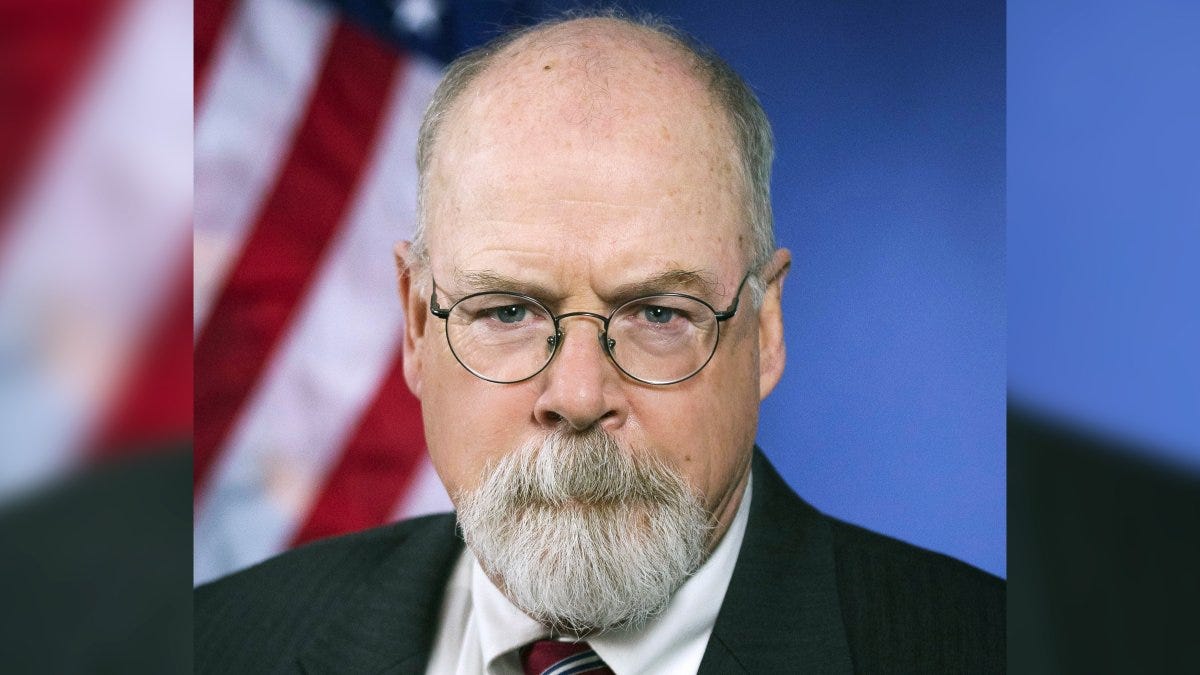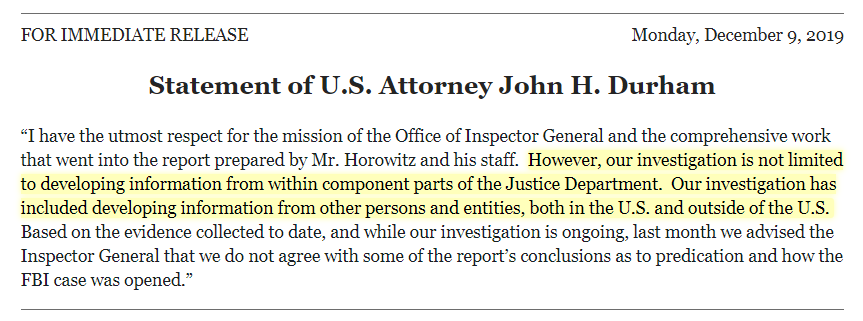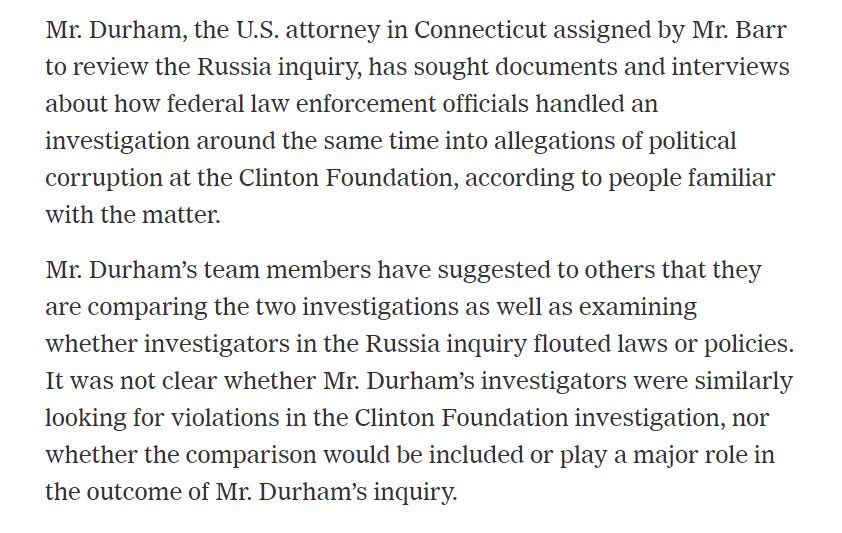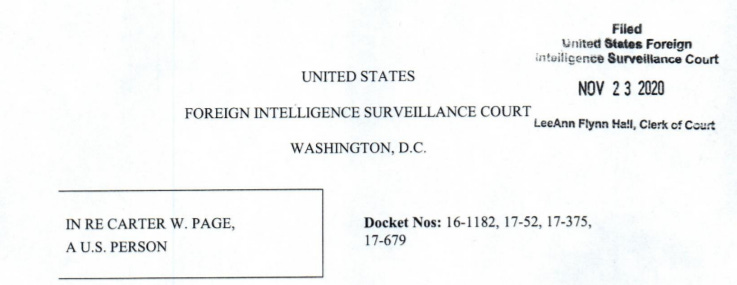John Durham Developments
CNN tries to downplay the Special Counsel's Investigation
Yesterday, Katelyn Polantz and Evan Perez reported that investigators with Special Counsel John Durham’s office have used grand jury subpoenas “to gather documents in recent months” and “are now arranging witness interviews.”
Of course, if you’ve been following along, this isn’t breaking news. There is months-old reporting on Durham’s use of grand juries and Durham isn’t just “now arranging witness interviews.” As then-U.S. Attorney Durham stated in a December 9, 2019 press release response disputing IG Horowitz’s opinions on the predication of Crossfire Hurricane, he had already developed “information from other persons and entities, both in the U.S. and outside of the U.S.”:
Subsequent interviews and reporting provided further information on Durham’s activities. In June 2020, Barr told Maria Bartiromo that the COVID pandemic had delayed witness interviews and suggested, while maintaining deniability, that the suspension of grand juries in DC had slowed Durham’s progress.
In September 2020, Adam Goldman (and others) at the New York Times broke a story that Durham (just prior to appointment as special counsel) was looking into how federal law enforcement officials handled the investigation of allegations “of political corruption at the Clinton Foundation.”
This reporting raises an eyebrow when we look to Special Counsel Durham’s scope memo, which authorizes him to investigate “law-enforcement activities directed at the 2016 presidential campaigns.” Campaigns plural.
Later last fall, on October 7, 2020, Dexter Filkins with The New Yorker reported that Durham had summoned to testify to a grand jury “scientists and others” quoted in his story on the origins and investigation of communications between the Trump Organization and Alfa Bank (Russia).
Filkins reported that Durham had even “asked” former Feinstein staffer Daniel Jones who has deep links to Fusion GPS to testify. (“Asked” is a curious phrasing - it’s unknown if there was a subpoena.) He added that some federal agents working for Durham told witnesses that they “were exploring a potential criminal charge . . . for giving false information to the government.”
When Language is Misleading
I provide background not only to summarize what we know about Durham’s investigation so far and to point out CNN’s deficiencies, but also to note how CNN reporters Polantz and Perez have framed their “reporting” in such a way as to diminish Durham’s appointment and progress:
For example, they state that Durham’s probe is is partly focused on the FBI’s “disclosures to the federal intelligence surveillance court.”
“Federal intelligence surveillance court”? The court calls itself the Foreign Intelligence Surveillance Court (FISC).
Durham investigating FBI “disclosures” to the FISC? That’s a strange word for a secret and sworn warrant and three subsequent renewals that require the utmost honesty from the DOJ and FBI. This happens when reporters have accurate words - like warrants and renewals - and need to find something less harmful to whatever agenda they’re promoting.
This is a regular problem with CNN - the use of vague language to downplay the truth. Today, the Bidens’ dog bit a National Park Service employee. CNN headline: “Bidens' dog Major involved in another biting incident”. This purposefully doesn’t get to the truth.
Dogs don’t have “biting incidents.” And what level of a biting “involvement” could a dog possibly have?
And why use the passive or vague where a simple “Biden Dog Bites Park Service Employee” is perfect? I think you know the answer…
Anyway, back to the Durham article. According to Polantz and Perez, Durham “putters along.”
This is a term typically reserved for people not doing much of anything. It becomes a derisive term when reporters use it to describe the Special Counsel. And it’s inaccurate when (1) you admit you’re ultimately clueless about Durham’s progress and (2) you cite sources who reference progress like grand jury subpoenas and interviews.











As always you are on it! Thank you Techno Fog
SUPER JOB!!!! Thank you!